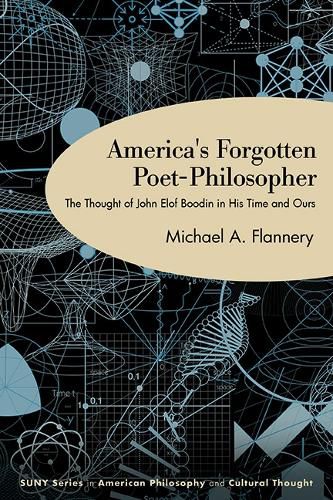Readings Newsletter
Become a Readings Member to make your shopping experience even easier.
Sign in or sign up for free!
You’re not far away from qualifying for FREE standard shipping within Australia
You’ve qualified for FREE standard shipping within Australia
The cart is loading…






Illuminating study of the ideas and influences of a near-forgotten American philosopher.
This book examines the ideas and influences of a nearly forgotten Swedish-American philosopher, John Elof Boodin (1869-1950). A friend and student of William James and protege of Josiah Royce at Harvard, Boodin combined Jamesian pragmatism and Roycean idealism in developing original scholarship (nearly sixty articles and eight books) from 1900 to 1947, in addition to a volume of posthumous papers published in 1957. Although he is seldom remembered today, the enduring importance of pragmatism and the rising influence of process theology today suggests that his close reading of early to mid-twentieth-century science and vast grasp of philosophical issues warrants a renewed interest in his work that can be a valuable antidote to the sterile and constricting effects of reductionism and dogmatic materialism prevalent today in both those fields.
$9.00 standard shipping within Australia
FREE standard shipping within Australia for orders over $100.00
Express & International shipping calculated at checkout
Illuminating study of the ideas and influences of a near-forgotten American philosopher.
This book examines the ideas and influences of a nearly forgotten Swedish-American philosopher, John Elof Boodin (1869-1950). A friend and student of William James and protege of Josiah Royce at Harvard, Boodin combined Jamesian pragmatism and Roycean idealism in developing original scholarship (nearly sixty articles and eight books) from 1900 to 1947, in addition to a volume of posthumous papers published in 1957. Although he is seldom remembered today, the enduring importance of pragmatism and the rising influence of process theology today suggests that his close reading of early to mid-twentieth-century science and vast grasp of philosophical issues warrants a renewed interest in his work that can be a valuable antidote to the sterile and constricting effects of reductionism and dogmatic materialism prevalent today in both those fields.